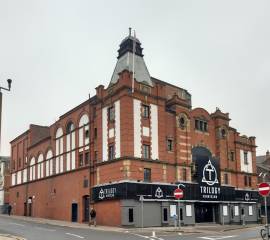Scope is limited with restaurant objections
My recent mention of trade objections has prompted a letter from a reader who runs a pub.
He is concerned that restaurants and even cafés in his area get drinks licences and then people come and use them as bars.
He claims that often no food is being served.
He wants to know whether he and his colleagues still have the power to object.
The short answer is probably, no.
Of course, if he has evidence of the abuse of a restaurant licence, he could, and should, refer the matter to the police.
But as far as objecting to the grant or renewal of a restaurant licence, I am afraid that there is limited scope for action.
If an application for a restaurant licence has been turned down by the justices in a neighbouring area on the strength of an objection from local licensees, either on the basis of possible illegal sales or of "need", as he claims in his letter, then the justices may have exceeded their authority and an appeal should be successful.
It must be understood that although the justices have a wide discretion in the granting of on-licences generally, it is far more limited in the case of Part IV licences, which include restaurants.
Instead of the Licensing Act's direction that they may grant a licence to persons they think fit and proper, Part IV contains the statement that "licensing justices shall not refuse an application duly made for the grant of a new Part IV licence, except on one or more of the grounds specified in section 98 of the Act..."
It does not seem to me that either of the factors mentioned in the letter comes within these specified grounds, so it is difficult to see how they could have affected the issue.
However, for the benefit of readers who may not know them, the following are the grounds for refusing an application for a restaurant or residential licence:
1. That the applicant is not 18 or is not a fit and proper person to hold a licence.
2.
That the premises are notsuitable and convenient, having regard to their character and condition, and do not comply with restaurant conditions (for example, that alcohol must be ancillary to table meals).
3.
That a licence has been forfeit or the premises have been ill-conducted.
4.
That the condition for providing beverages other than alcohol has been broken.
5.
That the premises will not habitually provide table meals of a kind to which the consumption of alcohol might be ancillary.
6.
It is a self-service restaurant where alcohol sales would be undesirable.
7.
A large proportion of the customers are persons under 18 not accompanied by adults who pay for them.
8.
The relevant authorities have not been allowed to inspect the premises.
While this is a long list, compliance with the conditions is by no means difficult, and the vast majority of restaurants would have no problems under any of the headings.
Certainly, there is nothing in them to suggest that other licensees may object on the basis of proliferation of similar outlets or that drinking could take place without meals throughout the afternoon.
There is an additional important point: when licensing justices refuse an application, they are required under section 98 "to specify in writing to the applicant the grounds of their refusal".
This means that any applicant who is turned down will know exactly on which of the above points he failed.
If he subsequently corrects the situation, then the justices will, on the evidence, have to grant the licence.













